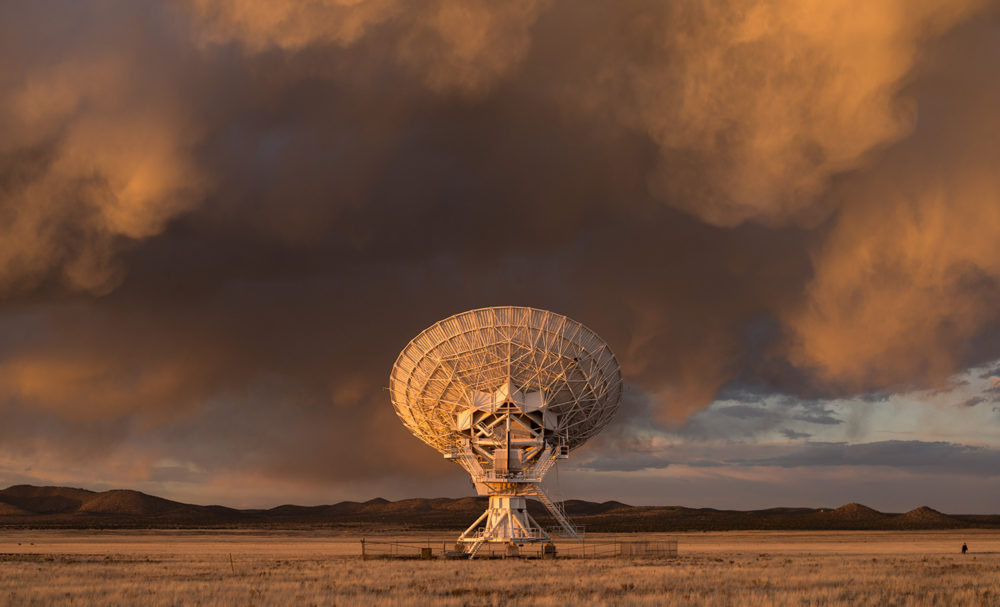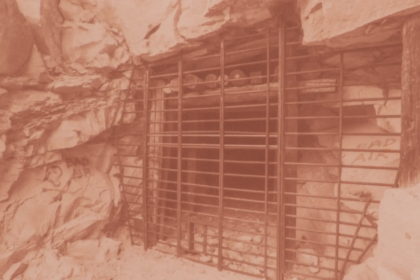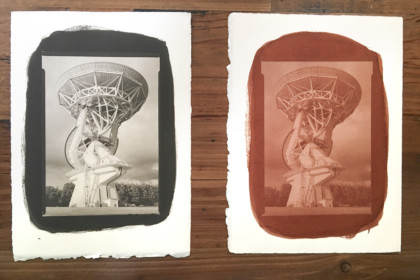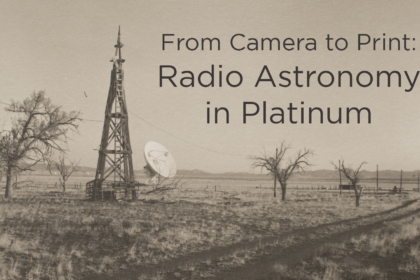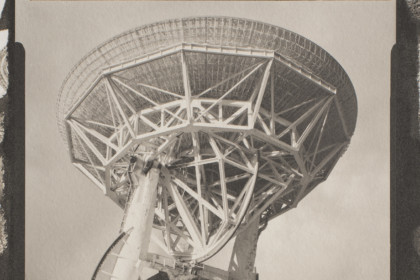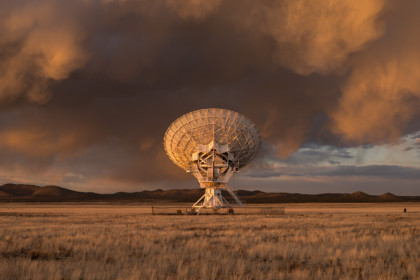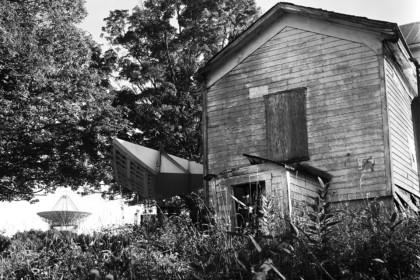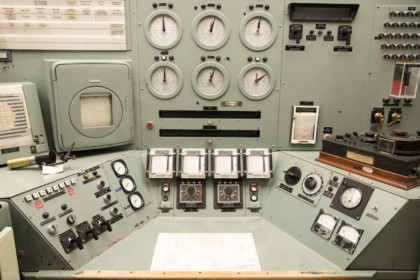In 1950, the United States had around 300 nuclear weapons in its arsenal. By 1965, that number had climbed to more than 31,000. Much of the uranium that fueled this arms race came from mines scattered across the American Southwest, only a tiny fraction of which have been cleaned up. This photographic project aims to…
Science Photography
Come see our first piece in a gallery exhibition!
The first public showing from our long-term project to artistically document the world’s radio telescopes in alternative processes will be a platinum/palladium and uranium diptych of the 140 foot telescope at the Green Bank Observatory in West Virginia. Opening November 1st at 6 PM at SoHoPhoto, the show will run through December 3rd. During our…
From Camera to Print: Radio Astronomy in Platinum, Part III
This Light & Noise produced video details the large format film & platinum/palladium printing process from the camera to the negative to the final print. A part of our ongoing project to document the world’s major radio astronomy observatories, “From Camera to Print: Radio Astronomy in Platinum” begins with a pre-sunset drive out to the…
Green Bank Residency Progress: Radio Astronomy in Platinum, Part II
In the months since our residency at the Green Bank National Radio Astronomy Observatory, we’ve been hard at work developing the more than 400 negatives we exposed during that three-week stretch. As we pass the half-way mark, we’re pleased to present a series of work prints that will eventually become part of our larger body of…
L&N Visits the Very Large Array: Radio Astronomy in Platinum
As part of our ongoing effort to document radio astronomy observatories around the world using large format film and alternative processes, L&N spent a week at the NRAO’s Very Large Array in April.
Green Bank Radio Astronomy Observatory
Of all the places we’ve visited, the National Radio Astronomy Observatory in Green Bank, West Virginia is closest to a spiritual home. L&N has spent hundreds of hours on site during a series of trips over the last two years, and we intend to dedicate a concentrated block of time to documenting these incredible telescopes in 2015. Due to tremendous…
L&N visits the Hanford Site
Arguably the most polluted place on the planet, the Department of Energy’s Hanford Site was home to the bulk of the the United States’s plutonium production capacity during WWII and the Cold War. Today, decommissioned nuclear reactors and plutonium processing facilities line the Columbia River as an unprecedented cleanup effort strives to return an area…
